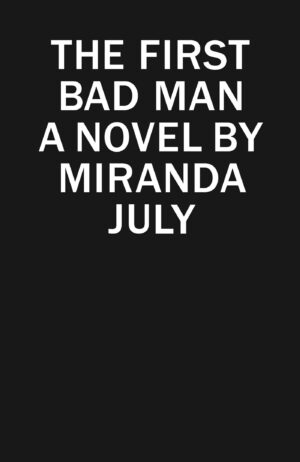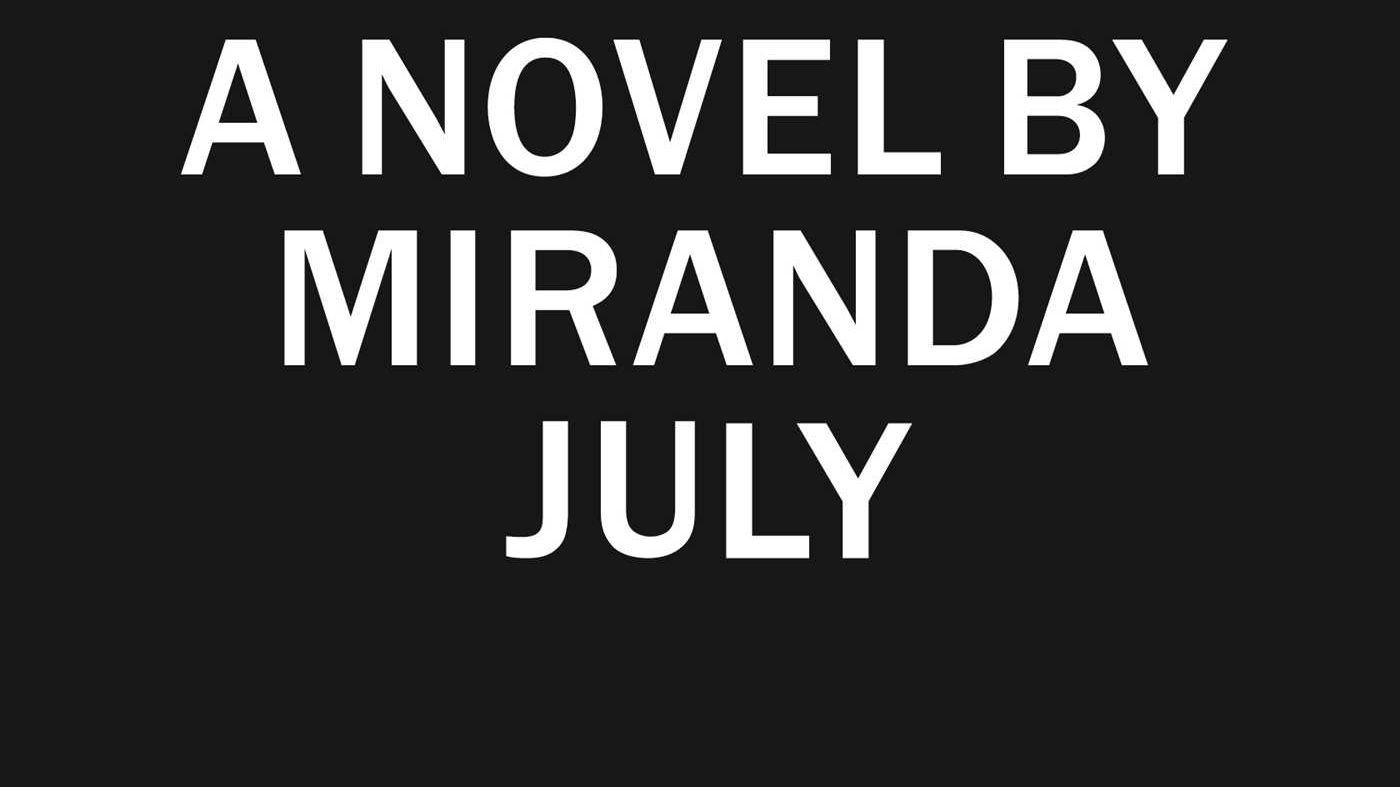Meet Cheryl Glickman. She’s not your average middle-aged woman who wears comfortable shoes and corduroy dresses. In filmmaker, artist, and writer Miranda July’s debut novel, she’s socially awkward, isolated, and self-diagnosed with globus hystericus. She owns one cooking pan that she never washes. She has a florid inner life, nursing a lifelong fantasy about a semi-fictional baby called Kubelko Bondy, whom she feels is destined to be hers one day. She attempts to find common ground with her crush Phillip, an older man who expounds on new-agey philosophies that hint at pedophilia (you’ll often wonder whom, exactly, “the first bad man” is supposed to represent). She projects heavily onto other people; that their reactions mimic hers is to her utmost comfort.
 But it all begins to change when her longtime bosses at Open Palm, a nonprofit self-defense center, hoist their daughter Clee on their employees, looking for someone to volunteer their home as a crash pad while Clee gets on her feet in Los Angeles. Cheryl is the one left holding the sleeping bag, and her life will never be the same.
But it all begins to change when her longtime bosses at Open Palm, a nonprofit self-defense center, hoist their daughter Clee on their employees, looking for someone to volunteer their home as a crash pad while Clee gets on her feet in Los Angeles. Cheryl is the one left holding the sleeping bag, and her life will never be the same.
The mental preparation for a guest is already a supremely uncomfortable experience for Cheryl, and when Clee arrives, it’s like someone has unzipped Cheryl’s skin and turned it inside out. She’s raw, an open wound, and Clee grinds salt into it with her uncouth manners, lax personal hygiene, and general viciousness. She bullies—nay, abuses—Cheryl, both verbally and physically. She overstays her welcome. She won’t leave.
But Cheryl’s self-loathing has reached a stage where it isn’t even self-loathing anymore. It’s become masochistic. The collision between her need and loneliness is deeply confusing. Not in a literary sense—July is in full command of her story, and her characters are vivid, so completely human in their faults, generating both repulsion and familiarity. July’s always been good at encouraging uncomfortableness. No, the collision is confusing for Cheryl. She actually doesn’t want Clee to leave.
Clee is, admittedly, disgusting. But she’s also twenty, and her parents are hippy-dippy Ojai fuckheads who culture-appropriate because they were “blown away” when they visited Japan, yet don’t extend the faux-humility and respect to other areas of their lives. They pick and choose the things that fit, across the board. You don’t realize the full extent of their passive–aggressive harm, and how truly horrible they are, until mid-novel.
And speaking of passive–aggressive, Cheryl’s initial passivity brought out some weird aggression in me. At first, the anger was directed at Clee, she who presses Cheryl into her own home’s wall while intoning, cruelly, “You’re so sad. Soooo. Saaaadddd.” Then, it turned to Cheryl, essentially joining Clee in her assault, demanding of the protagonist, “How can you think so little of yourself?” The experience was visceral, and reminiscent of my first bad man—when, at sixteen, I was Cheryl, walking through the pouring rain while my “hunger [stripped me] of [my] dignity”—and the resultant teenage passivity that whiplashed me into my more emboldened twenties.
To be sure, dignity is a big theme here. Cheryl’s aperiodic therapist, Dr. Ruth-Anne Tibbets, role-plays and subserviates herself whenever the doctor she shares office space with comes to town. In one particularly humiliating scene, Cheryl witnesses a confrontation between Dr. Tibbets and Dr. Broyard:
“Was this your plan, that we would stand in the hallway together and—what? … Fuck? …Or you just want to blow me? Hump my leg like a dog?” Broyard says with disgust. A crying Ruth-Anne responds that she would blow him, if that’s what he wanted.
This shifts the field, a psychiatric term that means, according to Cheryl, “everything could be exposed for what it really was,” and applies to every single relationship in the book. The field shifts, the balance of power tips, dignity may or may not be restored.
Yet throughout this weird, messy milieu, Cheryl remains oddly endearing and naïve (to a certain extent). When her and Clee’s relationship—Facebook’s outmoded “It’s Complicated” doesn’t even begin to describe it—reaches its climax, you see the gift Clee bestows upon Cheryl…and it isn’t love. It’s something much greater: a purpose. FL
The First Bad Man is out now via Simon & Schuster







